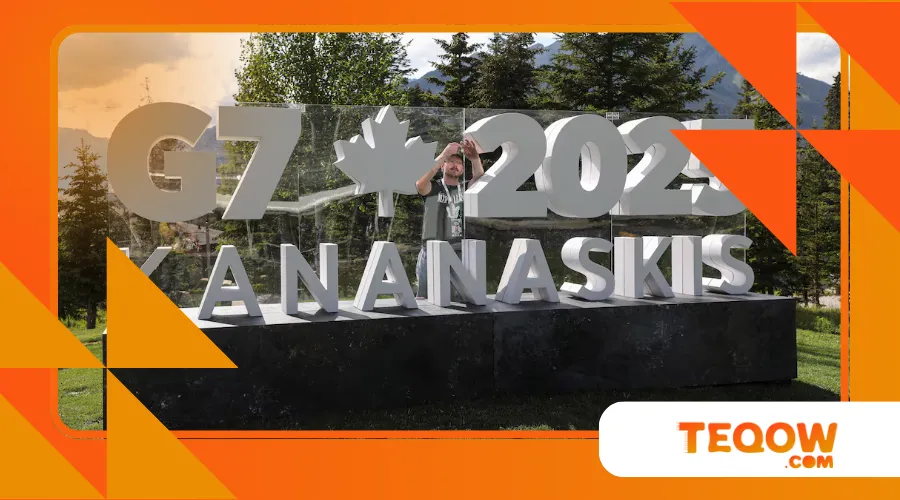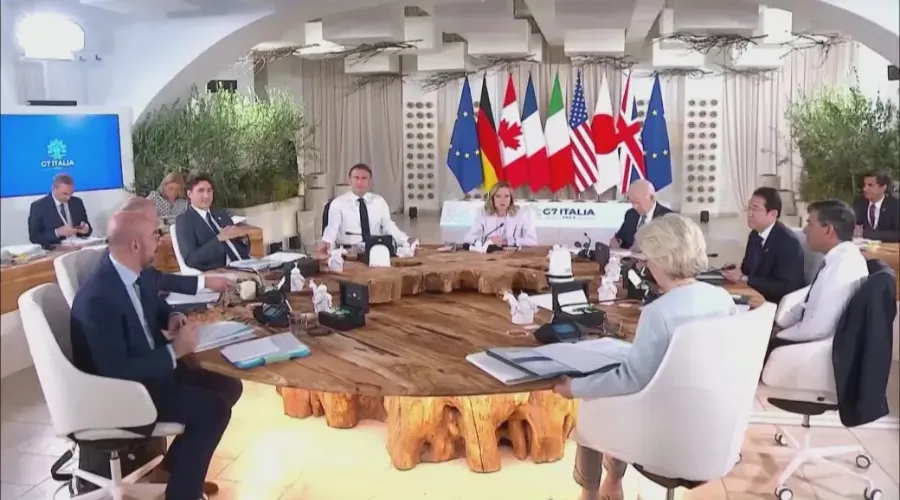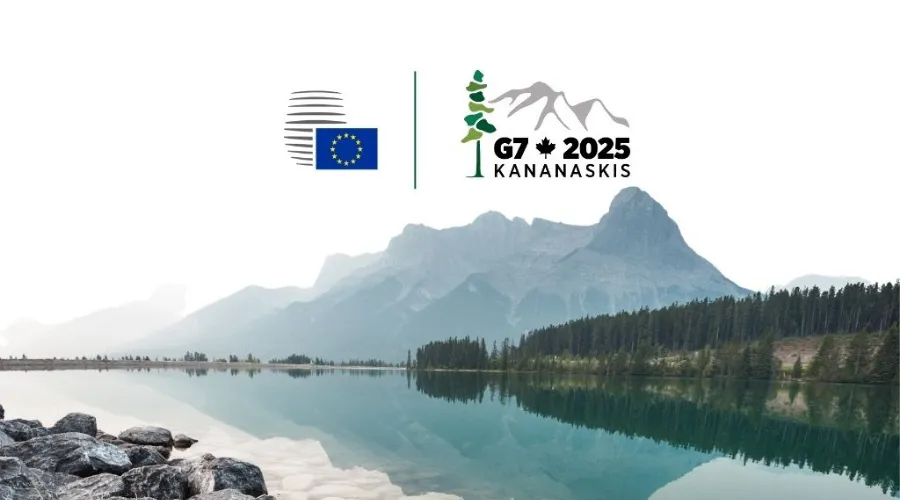Canada Hosts 2025 G7 Leaders’ Summit in Alberta

Canada hosts 2025 G7 leaders’ summit in Alberta this June, marking a strategic moment not only for Canadian diplomacy but for global consensus building in a divided world.
As the Rocky Mountains provide a serene backdrop, the summit’s agenda could not be more urgent or more transformative.
From digital sovereignty to green industrial policy, leaders are set to confront crises with collaborative resolve.
Alberta’s New Role on the Global Stage
Alberta, long known for its oil sands and rugged independence, is assuming a fresh identity in the global narrative.
Hosting the G7 summit in Banff National Park is more than symbolic; it sends a powerful message.
Canada is positioning itself as a bridge between traditional energy economies and emerging green superpowers.
This shift couldn’t come at a more critical time, as geopolitical fragmentation threatens cooperative problem-solving.
Consider this: Alberta’s economy, once almost singularly tied to fossil fuels, saw a 19% increase in cleantech investment between 2023 and 2024 (Source: Clean Energy Canada).
That growth reflects a deeper alignment with the summit’s focus on sustainable development.
Moreover, Alberta’s commitment to diversifying its economy is evident in the increasing number of startups focused on renewable energy and technology.
This transformation highlights the province’s adaptability and its potential to lead in the green economy.
The Agenda: Urgency Meets Unity
The 2025 G7 summit arrives with a full plate.
Artificial intelligence governance, the global energy transition, and bolstering economic resilience top the list.
While each country brings its own pressures and political climates to the table, there’s a shared recognition: unilateral action is a luxury the planet can no longer afford.
Italy’s Prime Minister will argue for expanded trade protections.
Japan is expected to promote quantum diplomacy.
Meanwhile, Canada is advancing a bold climate finance plan that could recalibrate global lending norms for developing nations.
Table 1: Key Policy Priorities by Nation at the 2025 G7 Summit
| Country | Priority Focus |
|---|---|
| Canada | Climate finance, AI ethics |
| USA | Industrial AI regulation |
| Germany | Green hydrogen standards |
| France | Digital sovereignty |
| UK | Energy resilience |
| Italy | Trade and food security |
| Japan | Quantum diplomacy |
Furthermore, discussions will also include how to enhance international cooperation on cybersecurity, which has become increasingly vital in today’s digital landscape.
Leaders will need to address vulnerabilities and propose frameworks to protect critical infrastructure.
+ The Most Important Rights Every Canadian Should Know
A Summit in the Age of AI and Autonomy
More than climate or trade, the G7’s sharpest debates may stem from the rise of autonomous technologies.
With AI now influencing everything from job markets to national security, world leaders will need to clarify ethical frameworks that remain enforceable across diverse legal systems.
Canada’s push for a global AI accord positions it as a convener rather than a controller.
Unlike China’s command-driven model or Silicon Valley’s laissez-faire ethos, Ottawa proposes a “democratic AI charter,” balancing innovation with accountability.
The analog here is air traffic control.
Planes from different nations can share skies only because a global protocol exists.
Why should AI be different?
Moreover, the implications of AI extend beyond governance; they touch upon societal impacts, including job displacement and privacy concerns.
Addressing these issues will be crucial for building public trust in AI technologies.

Voices Beyond the G7
Critics argue that the summit represents an outdated power structure.
With Brazil, India, and South Africa absent from the permanent roster, the G7 risks irrelevance.
Yet the inclusion of guest nations and observers this year signals an attempt to recalibrate.
Nigeria, Indonesia, and the African Union were invited to Alberta—a subtle shift toward multipolar realism.
Indeed, the phrase “Canada hosts 2025 G7 leaders’ summit” has gained symbolic traction in the Global South, where Canadian diplomacy is increasingly viewed as less imperial and more facilitative.
Example 1: During the pre-summit G7 Youth Forum in Calgary, a Nigerian delegate praised Canada for enabling grassroots access to diplomatic spaces.
“This isn’t just political theatre,” she said.
“It’s a platform.”
Additionally, the summit’s outreach efforts aim to amplify voices from marginalized communities, ensuring diverse perspectives are included in global discussions.
This approach not only enriches the dialogue but also fosters a sense of ownership among all stakeholders.
++ The Pros and Cons of Living in Canada in 2025
Economic Strategy in a Fragmenting World
Global growth is decelerating.
The World Bank projects only 2.6% GDP expansion globally in 2025, with regional shocks from conflict, inflation, and supply chain reconfigurations dampening forecasts.
Within this context, the summit’s economic agenda must be both targeted and flexible.
Germany’s Finance Minister is reportedly advocating for a joint G7 infrastructure fund.
The goal: counter China’s Belt and Road Initiative not through confrontation but through competition.
Canada’s contribution?
A proposal to leverage its public pension plans to co-finance energy projects in Africa and Southeast Asia.
Table 2: Proposed Economic Initiatives at the G7 2025
| Initiative | Proposed By | Projected Impact |
|---|---|---|
| Global Infrastructure Partnership | Germany | \$150B in co-financed projects |
| Green Transition Investment Fund | Canada | \$90B in cleantech globally |
| Quantum Tech Multilateral Platform | Japan | Innovation and tech exchange |
Moreover, the summit will explore innovative financing mechanisms that can mobilize private sector investment toward sustainable development goals.
These discussions are crucial for creating a resilient global economy amid uncertainties.

From Alberta to the Arctic
Beyond the conference rooms of Banff, another Canadian frontier is gaining attention.
The Arctic, with its melting ice and strategic potential, looms large in behind-the-scenes discussions.
As Canada hosts 2025 G7 leaders’ summit dialogues, Arctic governance is expected to become a wildcard topic.
Russia’s militarization of northern routes, combined with China’s polar silk road ambitions, means the Arctic isn’t just about climate—it’s about sovereignty, too.
Additionally, environmental protection in the Arctic will be a key focus, as leaders recognize the need for sustainable practices in this vulnerable region.
Collaborative efforts are essential to balance economic interests with ecological preservation.
Geopolitical Flashpoints and the Ukrainian Shadow
No G7 summit in the 2020s can avoid addressing Ukraine.
With the war now entering its fourth year, Western unity is being tested.
Voter fatigue, economic strains, and rising isolationist sentiment make continued support a contentious issue.
Canada’s role as a staunch ally and major donor gives it moral leverage.
Prime Minister Trudeau is expected to propose a reconstruction framework that includes both public and private sectors, seeking to move the dialogue from aid to investment.
Example 2: In a joint op-ed published in The Globe and Mail, Canadian and Polish leaders advocated for a “Marshall Plan for Ukraine 2.0,” emphasizing resilience over relief.
Furthermore, discussions will likely include strategies for strengthening NATO’s eastern flank to deter further aggression.
This proactive approach is vital for maintaining stability in the region.
Public Sentiment and the Optics of Power
Behind the closed doors of diplomacy lies another arena: public perception.
With populism on the rise and trust in institutions declining, leaders attending the summit must walk a fine line between decisiveness and transparency.
According to a recent Ipsos poll, 62% of Canadians approve of hosting the G7, citing international visibility and economic opportunity.
However, only 38% believe such summits produce “tangible global outcomes.”
Additionally, engaging with local communities and civil society organizations can enhance transparency and foster public trust in the outcomes of the summit.
This engagement is crucial for ensuring that the voices of citizens are heard in global discussions.
The Alberta Effect: Local Impact of Global Talks
The summit’s local economic footprint cannot be ignored.
Hotels in Banff and Calgary have reported near-total occupancy for the week.
Security, logistics, and hospitality industries have surged.
Local Indigenous communities have also been included in planning discussions, reflecting Canada’s ongoing reconciliation efforts.
For small business owners, the ripple effect is real.
“We’ve never had this much global foot traffic,” says Melanie Kiyooka, who runs a tea house in Banff.
“It’s like the Olympics, but for ideas.”
Moreover, the summit provides an opportunity for Alberta to showcase its cultural heritage and natural beauty to an international audience.
This exposure can lead to increased tourism and investment in the region.
What Comes After?
Once the cameras leave and the communiqués are signed, what will linger?
The true test of the summit lies in implementation.
Will AI ethics be enforceable?
Will green finance reach the Global South?
Can democratic alliances remain cohesive in a world splintering into tech blocs and political tribes?
As Canada hosts 2025 G7 leaders’ summit, the hope is that this gathering does more than signal intent—that it activates action.
There’s no time for symbolic handshakes when literal floodwaters rise.
Moreover, follow-up mechanisms will be essential to ensure that commitments made during the summit translate into real-world impacts.
Establishing clear timelines and accountability measures will be crucial for maintaining momentum.
A Closing Thought
Can seven nations still shape a world of nearly eight billion people?
The answer may depend not just on their declarations, but on how well they listen.
The Alberta summit is a chance to recalibrate not just strategy, but story—from dominance to dialogue, from sovereignty to stewardship.
Canada hosts 2025 G7 leaders’ summit not as a climax, but as a catalyst.
The world is watching.
What happens next is up to all of us.
